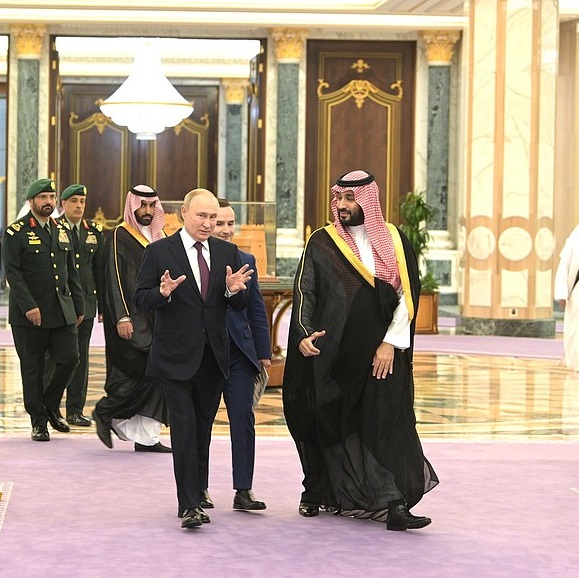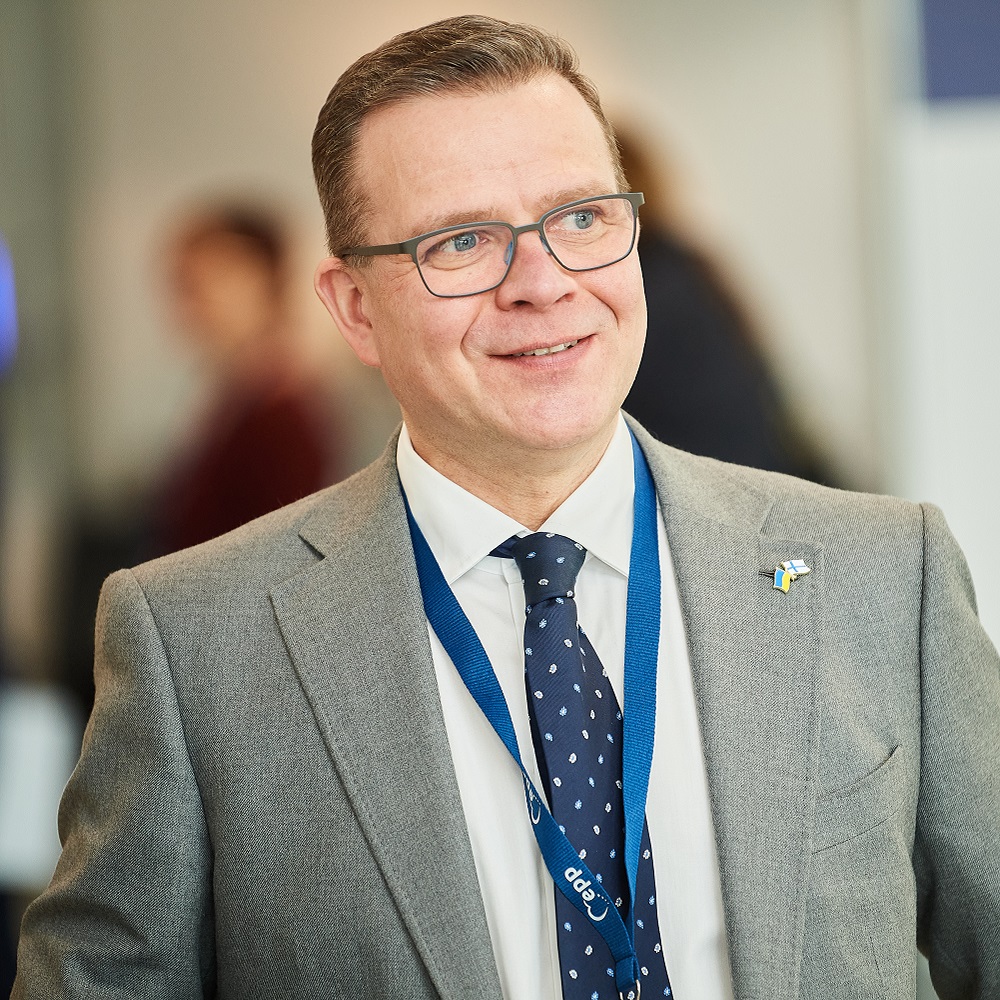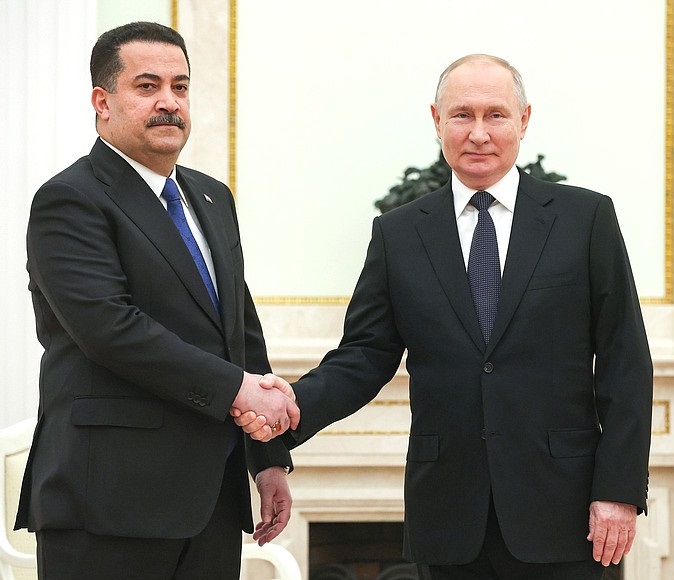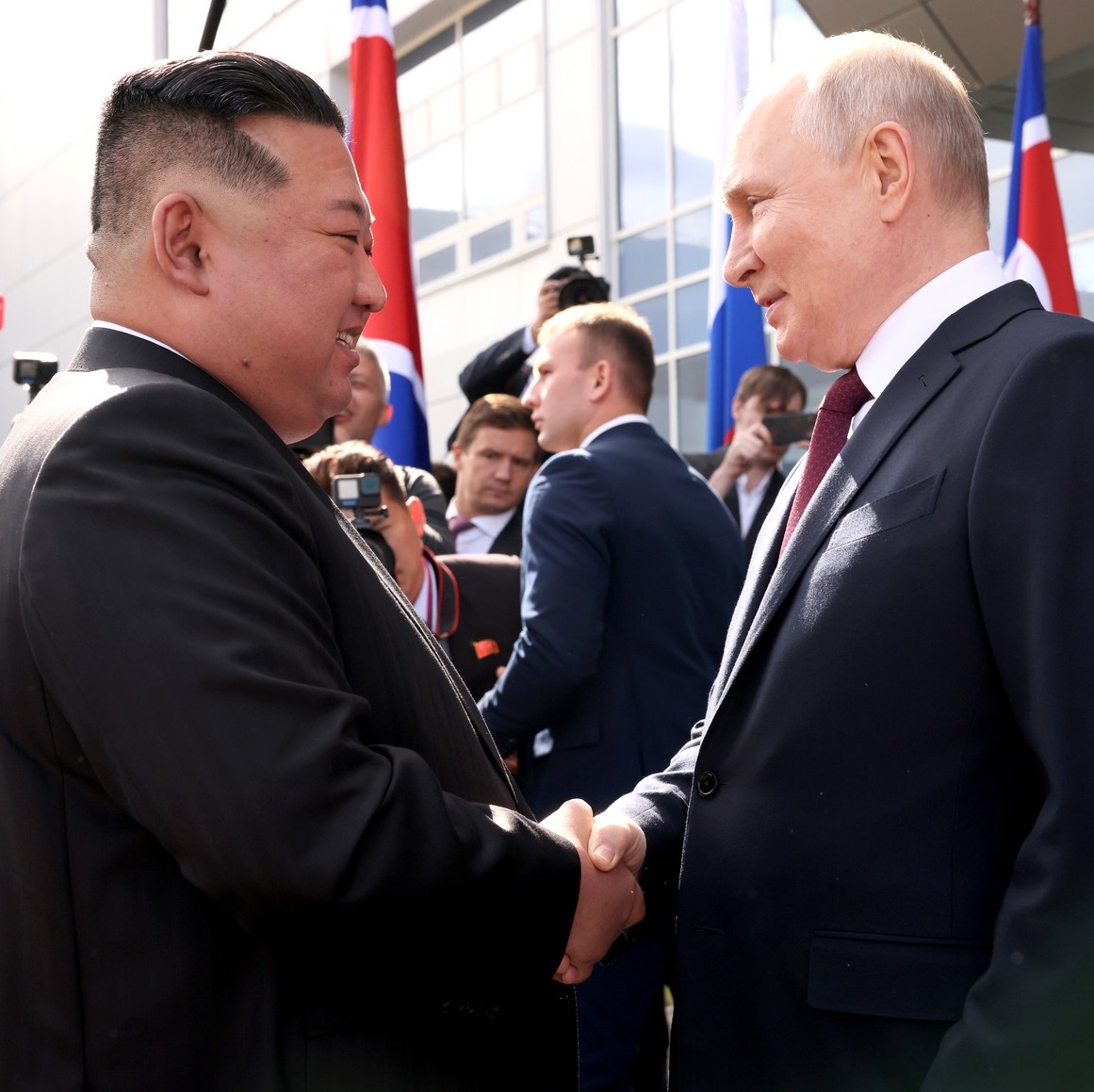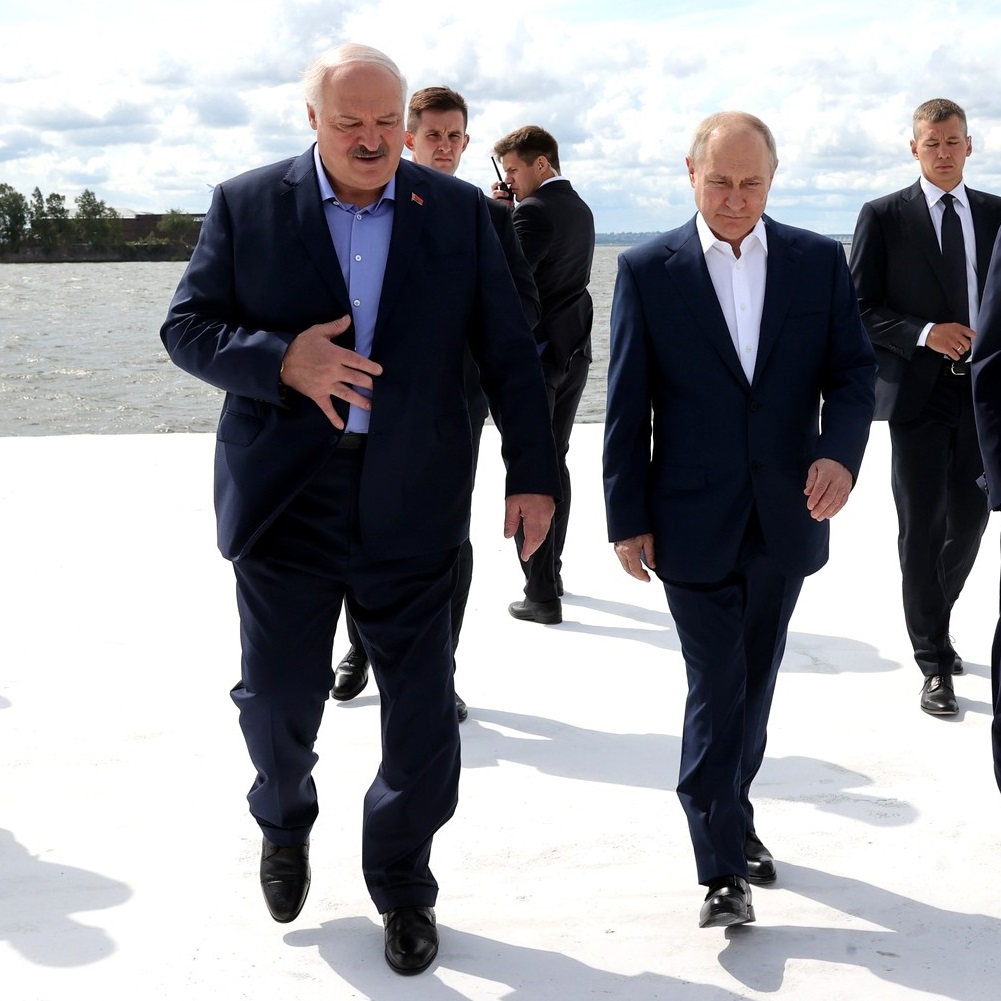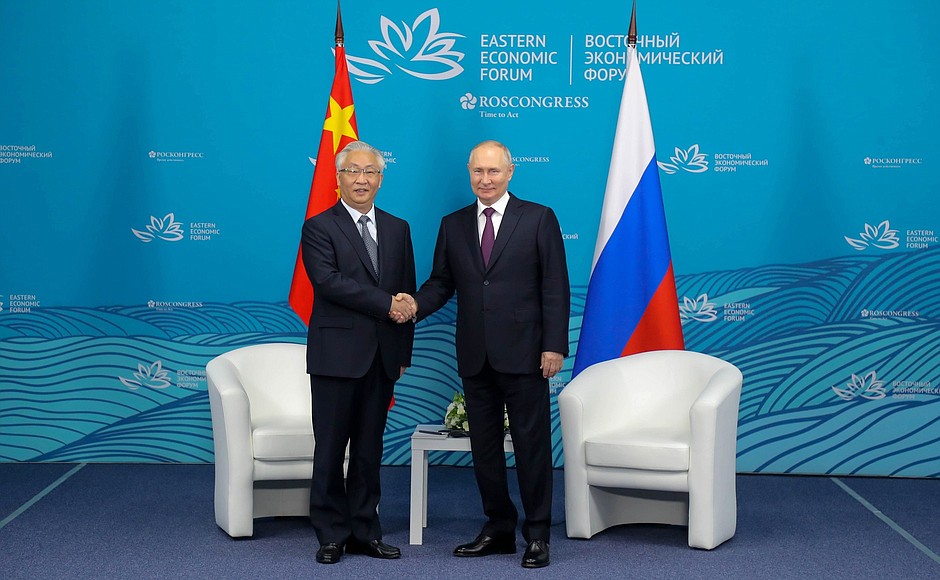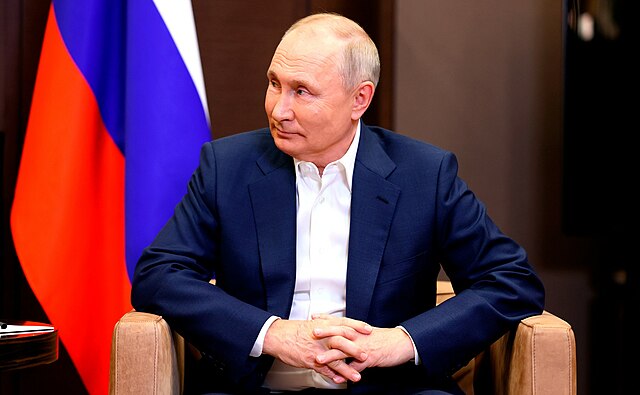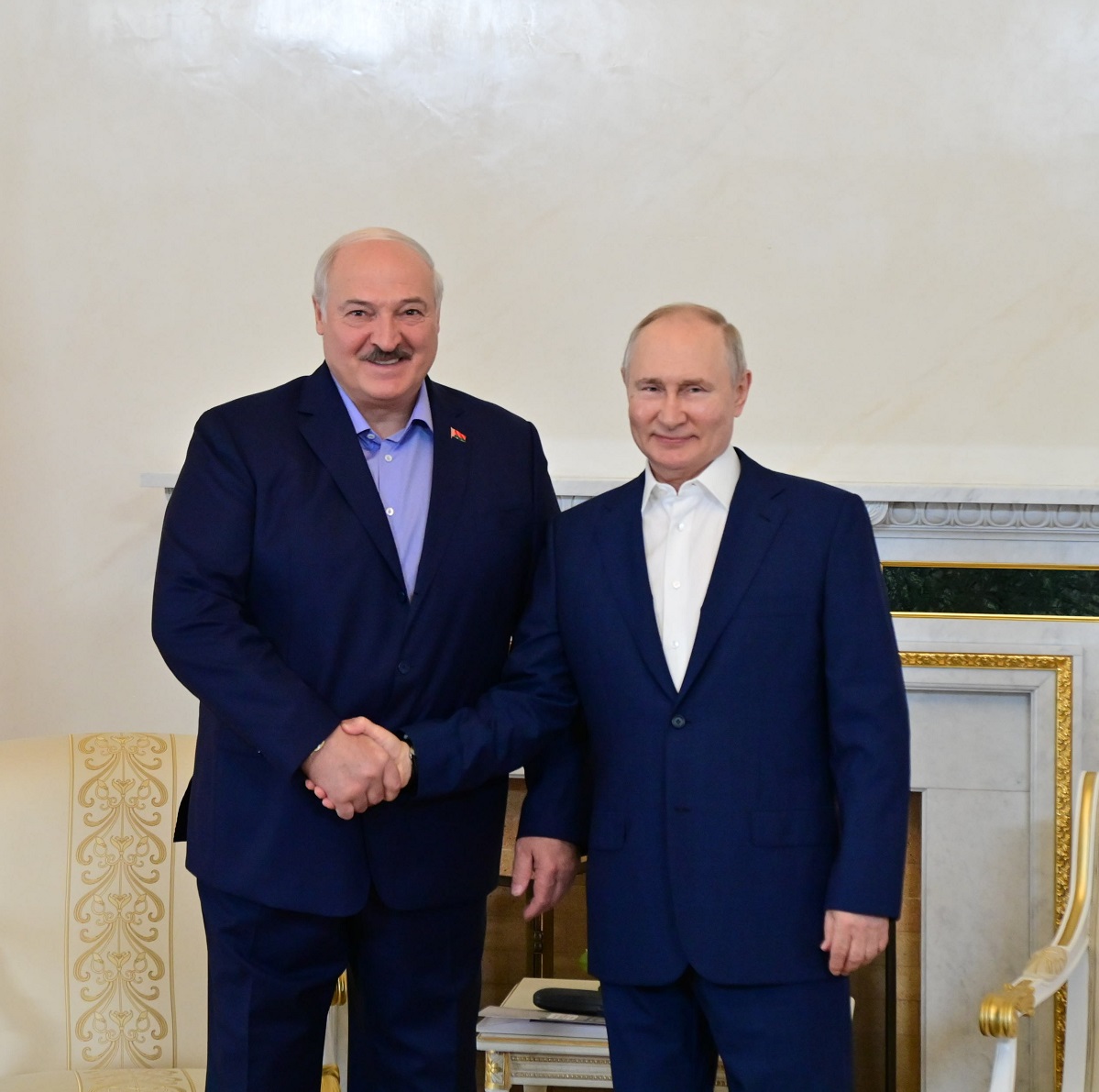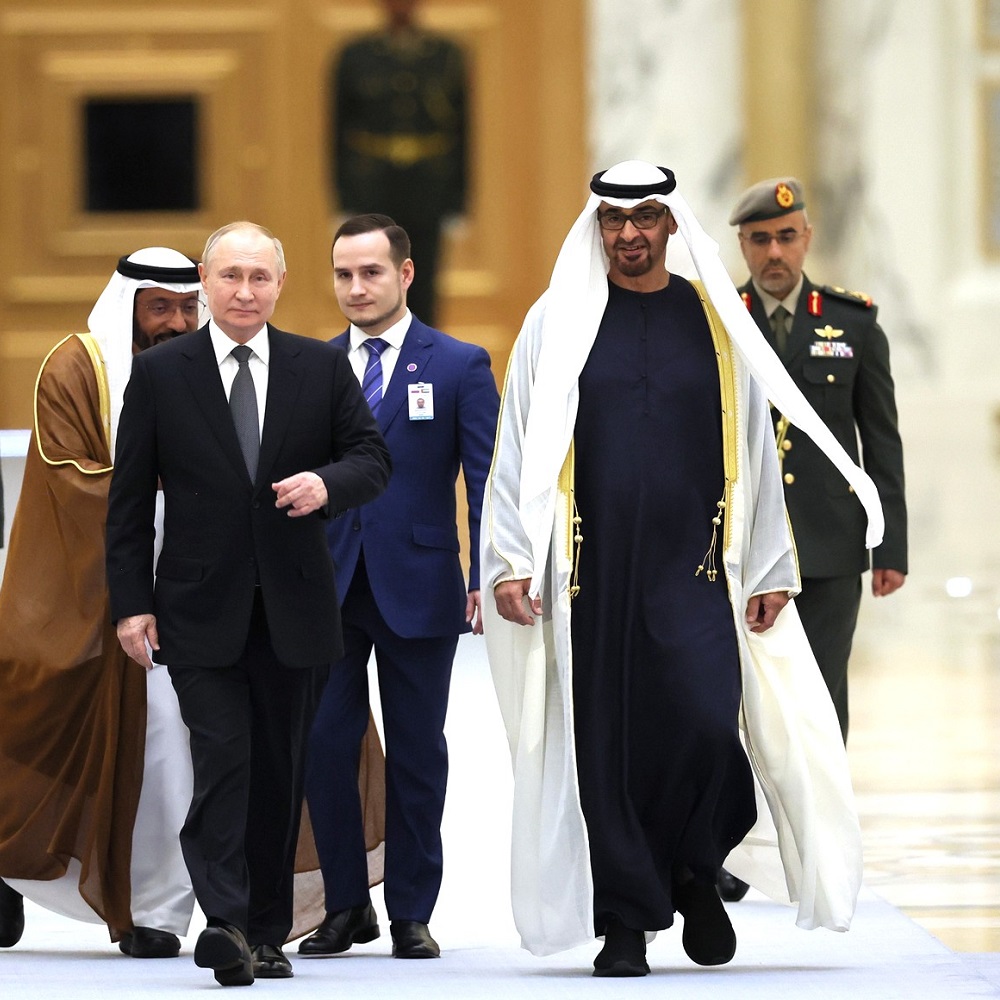
Russia-UAE talks
by Vladimir Putin
Vladimir Putin held talks with President of the United Arab Emirates Sheikh Mohammed bin Zayed Al Nahyan in Abu Dhabi. The agenda included the current state of multifaceted Russia-UAE cooperation and prospects for the further expansion of ties, as well as topical international issues with a focus on the situation in the Middle East. Before the consultations began, an official welcoming ceremony for the Russian President was hosted by the President of the UAE at the Qasr Al Watan Palace. Foreign Minister Sergei Lavrov, First Deputy Prime Minister Andrei Belousov, Deputy Prime Minister – Minister of Industry and Trade, Russian co-chair of the Russian-Emirati Intergovernmental Commission on Trade, Economic and Technical Cooperation Denis Manturov, Deputy Prime Minister Alexander Novak, Deputy Chief of Staff of the Presidential Executive Office – Presidential Press Secretary Dmitry Peskov, presidential aides Igor Levitin, Maxim Oreshkin and Yury Ushakov, Russia’s Ambassador to the UAE Timur Zabirov, as well as Head of the Chechen Republic Ramzan Kadyrov, Central Bank Governor, heads of the Roscosmos State Corporation, Russian Direct Investment Fund, Rosatom State Corporation, Rosoboronexport, VEB.RF State Development Corporation, and other officials took part in the talks on Russia’s side. * * * Beginning of Russia-UAE talks President of the United Arab Emirates Sheikh Mohammed bin Zayed Al Nahyan (retranslated): Welcome, my dear friend Vladimir Putin, to the United Arab Emirates. I am glad to see you again. Let me begin by emphasising the historical nature of relations between the Russian Federation and the UAE. Over the past years, we have witnessed a substantial push to develop these relations in various spheres for the mutual benefit of our nations and people. I would like to express my great appreciation for your personal and effective contribution to strengthening our bilateral relations. In this context, I would like to say that the UAE is Russia’s biggest trade partner in the Middle East and in the Gulf Region. Let me note that the UAE is a major investor in the Russian economy. Investment in the non-oil sector increased by 103 percent over the past year. I would like to specifically mention that this is an unprecedented breakthrough which demonstrates the special nature of relations between our countries. I will be glad to continue working together on strengthening bilateral cooperation in various spheres. Of course, promoting development in energy, infrastructure, and high technologies, as well as elsewhere has special priority. In addition to this, I would like to mention that the United Arab Emirates and the Russian Federation have been working together and cooperating within various international frameworks. For example, we work together within BRICS and the Shanghai Cooperation Organisation, where the Emirates were granted dialogue partner status in May 2023. We are also developing and promoting the strategic dialogue between the Russian Federation and the Gulf Cooperation Council. This helps us reinforce our relations and expand them in various spheres, promoting a proactive exchange of views on key international and regional matters, as well as on key items on our bilateral agenda. Once again, Mr President, welcome to the United Arab Emirates. I wish progress and prosperity to the Russian Federation and its people. President of Russia Vladimir Putin: Your Highness, friends, First of all, I would like to thank you for inviting us and for this colourful and friendly welcome. The other day, the United Arab Emirates celebrated the 52nd anniversary of its founding. I want to congratulate you on this and I want to recall that the Soviet Union was among the first to recognise this independent, self-reliant, and sovereign state. Today, our relations – thanks to the position you have taken – have reached unprecedented heights. You and I are in constant contact, and our colleagues work together on a permanent basis. In fact, the United Arab Emirates is Russia’s main trade partner in the Arab world. Last year, trade grew by 67.7 percent. This year, I think, the figures will be even higher. The same goes for investment activity. There is also progress in industrial cooperation, by which I mean cooperation to build certain industrial facilities in the United Arab Emirates and in the Russian Federation. A number of major oil and gas projects are being implemented. We also cooperate through OPEC Plus. We certainly attach due importance to humanitarian ties. Tourist exchanges are making headway: last year, almost one million tourists from Russia – a little over 900,000 – visited the UAE. A Russian school has been opened, and we are grateful to you for ordering land set aside to build a Russian Orthodox church. We also cooperate internationally. As a non-permanent member of the UN Security Council, the United Arab Emirates makes a huge contribution to stabilising the situation in the world. We will certainly discuss with you the situation in the main hot spots, primarily, of course, the Arab-Palestinian-Israeli conflict. I will certainly inform you of the developments in the context of the Ukraine crisis. I am quite pleased that the United Arab Emirates is beginning to work within the BRICS system. In 2024, Russia will chair this organisation. We will continue contacts on this. We look forward to meeting you at the [BRICS] summit in Kazan in October 2024. The UAE is currently hosting one of the world’s most important environmental forums. The first results of the effort to implement the Paris Agreement are being summed up. As expected, you are holding this event at the highest level, and very many people in the world, even those who do not identify themselves with environmental movements, are certainly grateful to you for this work. A Russian delegation is also involved in this work at the highest level. We wish you success. I have no doubt that it will be so. Shukran! <…>









